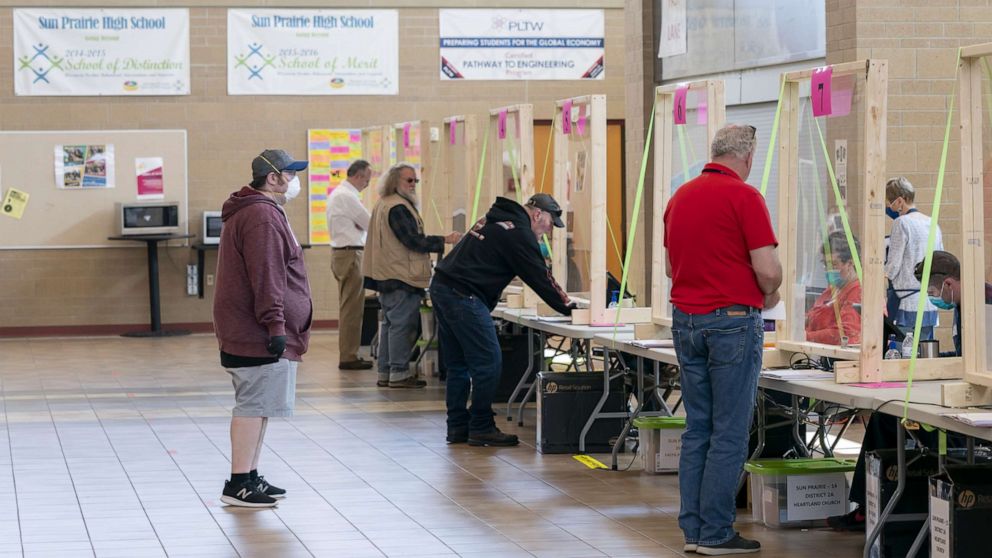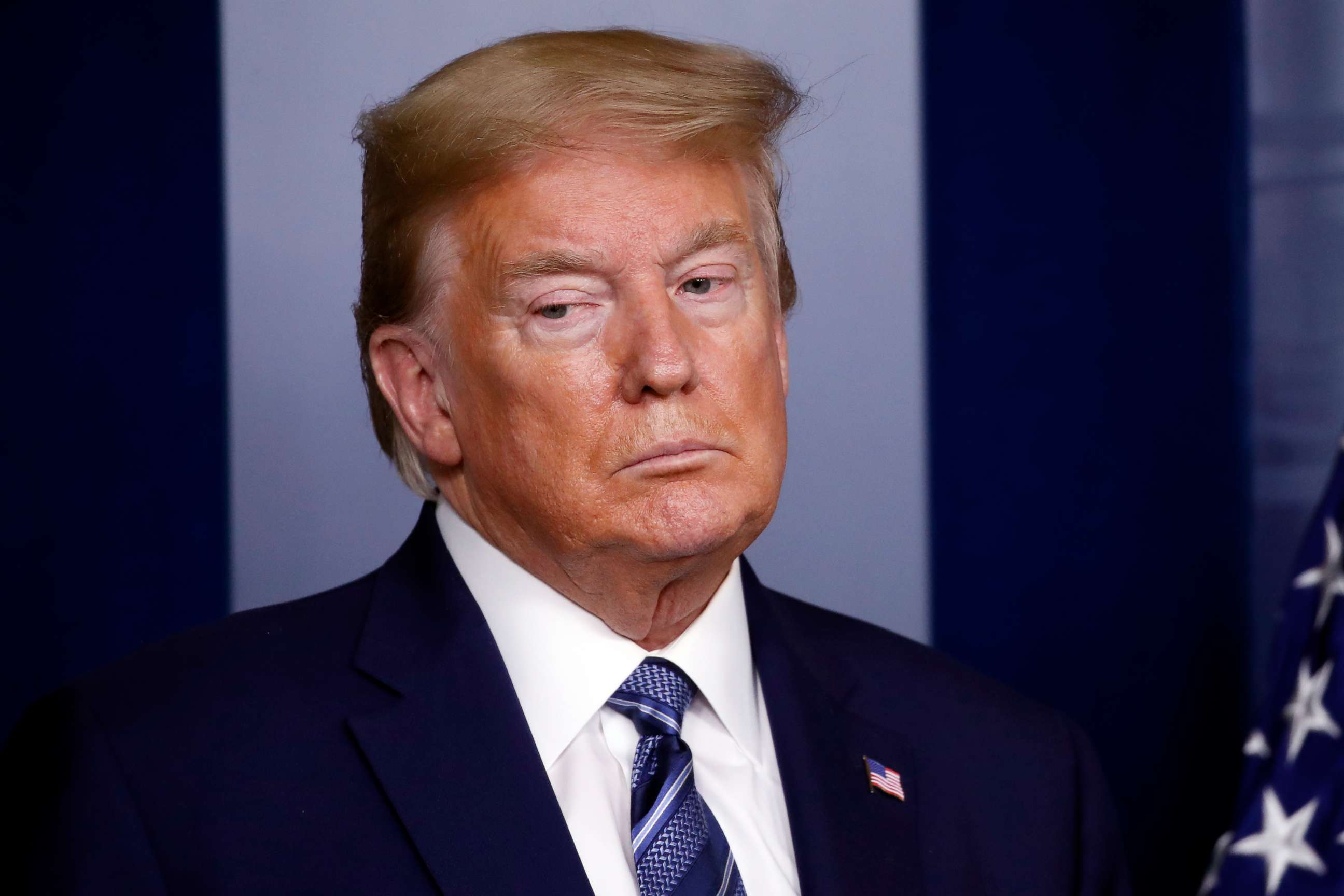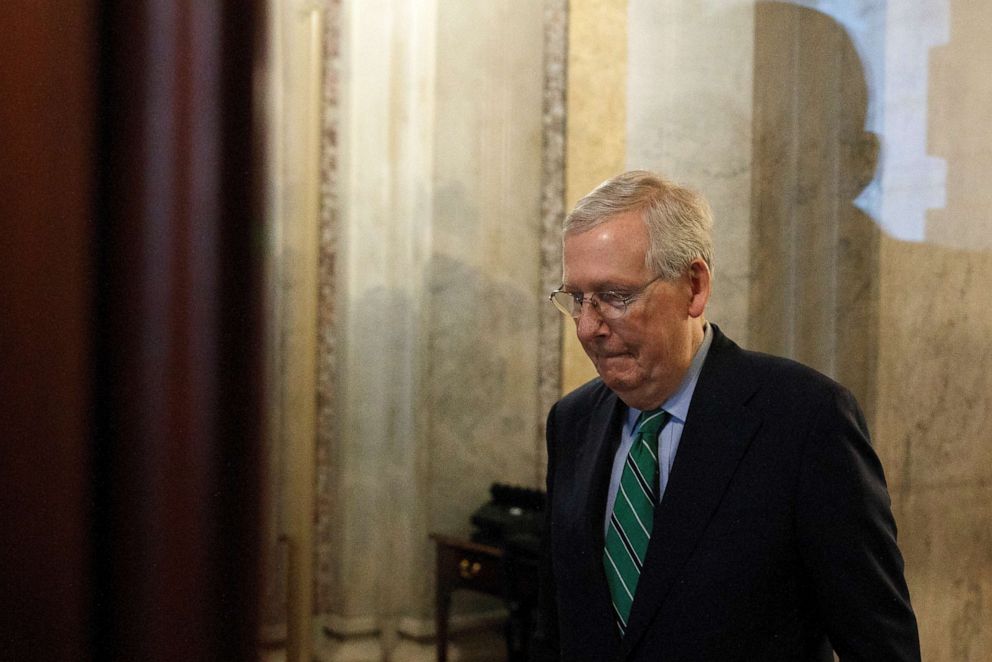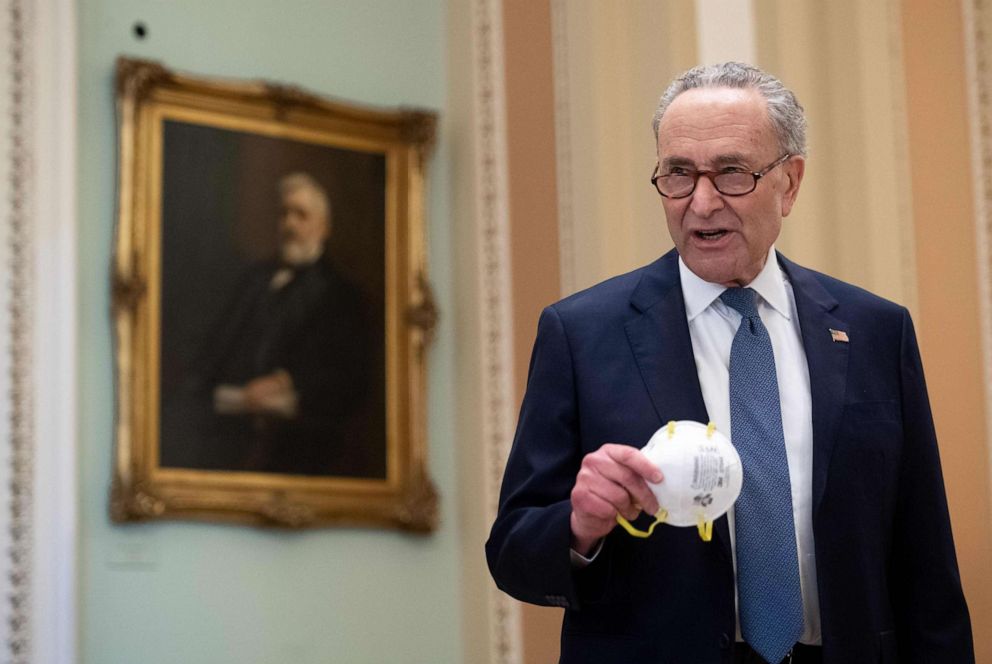The Note: Election reforms moving quickly, despite Trump’s objections
Laws and practices are already changing to expand voting options.
The TAKE with Rick Klein
President Donald Trump is trying to wage the election fights he wants -- including his views of how people should be able to vote.
But election reforms are happening rapidly and widely despite those views, and in many cases with the cooperation of Republican elected officials. Just two weeks after in-person voting went ahead in Wisconsin, despite the novel coronavirus, laws and practices are already changing to expand voting options in a range of battleground states -- with much more action likely before November.

Vote-by-mail and absentee voting is expanding significantly in Pennsylvania and Virginia. Republican officials in Georgia and Ohio are pressing forward with plans to send absentee ballots to all registered voters before their delayed primaries and the GOP governor of New Hampshire is expanding absentee voting in his state.
At least 32 states, plus the District of Columbia, plan to use recently approved federal funds to bolster mail-in or absentee voting, according to state filings compiled by the Leadership Conference on Civil and Human Rights and reviewed by ABC News.
Democrats, meanwhile, are rallying behind the cause. Former first lady Michelle Obama has joined the fight in a high-profile way and Stacey Abrams and other vice-presidential contenders are part of major efforts to give voters more ways to vote than at traditional polling sites.

Details will take months to play out, with legislative and judicial action pending at multiple levels. Six months won’t be enough for many states to fundamentally change how they conduct elections.
Trump has bought into the conventional view that vote-by-mail helps Democrats -- and early data out of Wisconsin suggests that the quick expansions there helped a liberal state Supreme Court candidate.
But Republicans may find themselves fighting a battle that’s already ending if they push against efforts to give voters more options in a nation paralyzed by a pandemic. Campaigns in both parties will be making adjustments as quickly as state practices change, regardless of Trump’s take on the matter.
The RUNDOWN with MaryAlice Parks
On immigration, Trump said he is just getting started. Meanwhile on economic relief and stimulus, Senate Majority Leader Mitch McConnell signaled Tuesday he’s done for now.
Asked about what it would take for the White House to scale back his new executive order aimed at halting large swaths of immigration to the country, the president punted. He claimed his intention was to help American citizens -- reeling from sweeping unemployment -- get back on their feet without having to compete against immigrants for jobs.
But he made no indication and provided no details for what metrics he would use to reverse course on immigration levels should employment numbers improve. In fact, he said during his Tuesday briefing that he was considering additional executive orders to limit legal immigration further, as this new executive order reportedly has many exceptions.

McConnell also made clear he is focused on getting Americans back to work. On Tuesday, the Senate passed another economic relief bill allocating additional emergency dollars to hospitals and small businesses. The House considers the measure next. With that done and completed, the Senate majority leader signed off for now, adding that he wants to wait until he can bring everyone back to Washington to write more bills.
"I will predict that we will not try to pass another rescue package by consent. My view is we ought to bring everybody back -- have full participation again -- to think about the implications to the country's future for this level of national debt,” he said.
McConnell pitched a new normal as a part of opening up businesses. He said he hoped to see a more Americans comfortable wearing masks in public and continuing to practice social distancing. He did not acknowledge the risks inherent in asking 100 senators, plus their staffers, to travel back to the Capitol, nor did he acknowledge that the Senate in session could potentially break many social distancing and group-gathering protocols which are currently recommended by medical experts.
The TIP with Benjamin Siegel
When House members come together on Capitol Hill Thursday for a vote on replenishing the small business loan program, they are expected to clash over an unprecedented measure to allow lawmakers to vote remotely by proxy. The unprecedented rule change would reduce the number of lawmakers required in the Capitol for votes during the coronavirus outbreak, by allowing members to vote on behalf of those not present.
The move, now officially sanctioned by Democratic leaders, has met resistance from House Republicans. House Minority Leader Kevin McCarthy, who on Tuesday called on House Speaker Nancy Pelosi to provide a plan for how to reopen Congress during the coronavirus outbreak, worried that any change could lead to “potential abuses of power.”

"I think it's a terrible idea," Rep. Jim Jordan, R-Ohio, said Tuesday at the Capitol. "What is it, 200 plus years we've been, Congress has been meeting -- and you meet in person, you debate and you vote in person. So, I think it’s that fundamental."
The House last gathered in full in early March to approve an initial coronavirus relief package, and several lawmakers tested positive for COVID soon after the mass gathering on the House floor. A smaller group was forced to convene to pass the $2.2 trillion CARES Act, after Rep. Thomas Massie, R-Ky., insisted on a floor vote, though members practiced social distancing by fanning out across the floor and into the galleries above the chamber usually reserved for the public.
THE PLAYLIST
ABC News' "Start Here" podcast. Wednesday morning’s episode features Shannon Stafford, a hair salon owner in Savannah, Georgia, who is planning to reopen Friday amid tight restrictions. Then, ABC News Senior White House correspondent Cecilia Vega parses President Donald Trump’s plan to temporarily suspend immigration amid the pandemic. And, ABC News’ Molly Nagle gives us an early look at the Joe Biden ‘veepstakes.’ http://apple.co/2HPocUL
ABC News' "Powerhouse Politics" podcast. Michigan Gov. Gretchen Whitmer joins ABC News Political Director Rick Klein and Chief White House Correspondent Jonathan Karl. https://bit.ly/2w091jE
WHAT YOU NEED TO KNOW TODAY
Download the ABC News app and select "The Note" as an item of interest to receive the day's sharpest political analysis.
The Note is a daily ABC News feature that highlights the day's top stories in politics. Please check back tomorrow for the latest.



